
Heart Health: Essential Facts
Your heart is the engine of your body, pumping about 100,000 times a day and circulating nearly 7,500 liters of blood. This vital organ fuels all bodily functions by delivering oxygen and nutrients to every cell while efficiently removing waste. Maintaining heart health can significantly extend your life and improve your quality of living.
Intriguing Facts:
- The heart has its own electrical system, allowing it to continue beating even when temporarily separated from the body.
- Regular exercise strengthens the heart muscle, reducing the risk of cardiovascular disease.
- Prioritising heart health through balanced nutrition, regular checkups, and healthy lifestyle habits can prevent many common heart conditions.
Supporting heart health through balanced nutrition, regular checkups, and healthy lifestyle habits can prevent many common heart conditions.
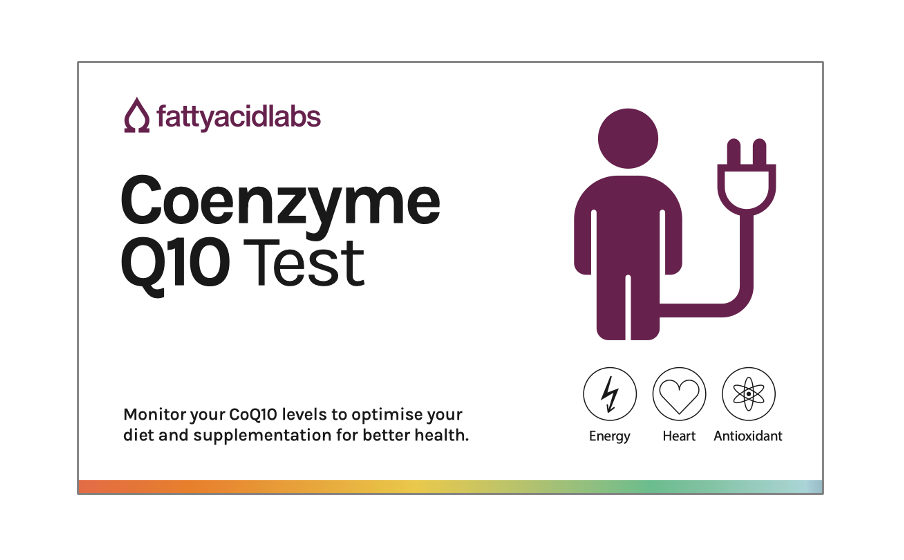
CoQ10 (Coenzyme)
Key Benefits:
- Energy Production: CoQ10 supports the production of ATP, the energy currency of cells, ensuring that the heart has the fuel it needs to function optimally.
- Antioxidant Protection: CoQ10 helps neutralize harmful free radicals, protecting the heart from oxidative stress, which can contribute to heart disease.
- Supports Healthy Blood Pressure: Studies have shown that CoQ10 can help maintain healthy blood pressure levels by improving the elasticity of blood vessels and promoting better circulation.
What is?
CoQ10 (Coenzyme) Test
Coenzyme Q10 (CoQ10) is a powerful antioxidant naturally produced by your body, essential for energy production and maintaining overall cellular health. It plays a crucial role in heart health, as the heart is one of the most energy-demanding organs in the body. As CoQ10 levels naturally decline with age, supplementing with CoQ10 can support heart health, especially for those at risk of cardiovascular conditions. Adding CoQ10 to your daily routine, along with other heart-healthy habits, can enhance your heart's function and long-term well-being.
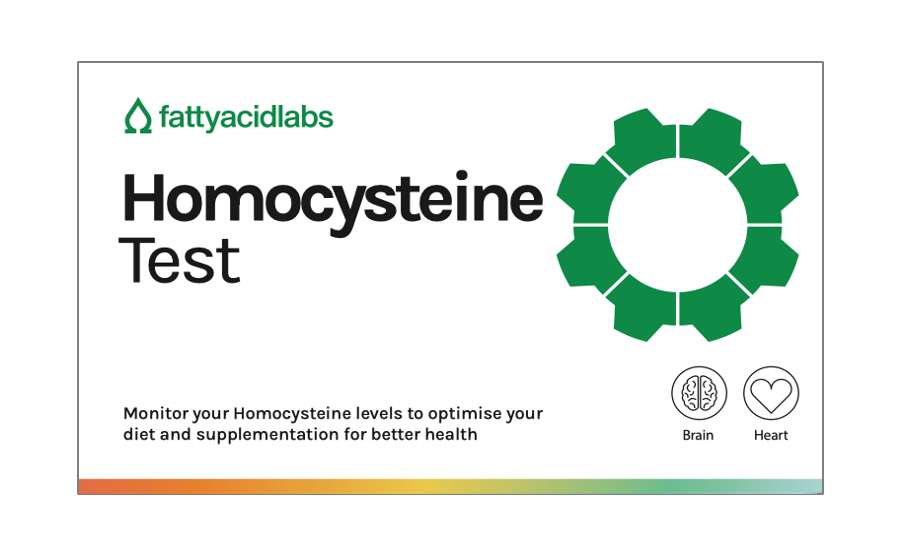
Homocysteine
Key Benefits:
- Reduces Risk of Heart Disease: Elevated homocysteine levels are linked to damage of the arteries, increasing the risk of cardiovascular conditions such as heart attacks and strokes.
- Supports Healthy Blood Vessels: High homocysteine levels can impair the flexibility and function of blood vessels, leading to high blood pressure and atherosclerosis (plaque buildup in arteries). Monitoring and managing levels can support vascular health.
- Promotes Healthy Metabolism: Homocysteine is involved in the body's metabolism of vitamins like B6, B12, and folate, which play crucial roles in lowering homocysteine and protecting heart health.
What is?
Homocysteine Test
Homocysteine is an amino acid produced in the body, and elevated levels of it in the blood can be a risk factor for heart disease. The Homocysteine test helps assess your heart health by measuring the concentration of this amino acid, providing insight into your cardiovascular risk. Testing your homocysteine levels allows you to take proactive steps in maintaining heart health. With proper nutrition and lifestyle changes, you can reduce homocysteine levels and protect your cardiovascular system from potential damage.
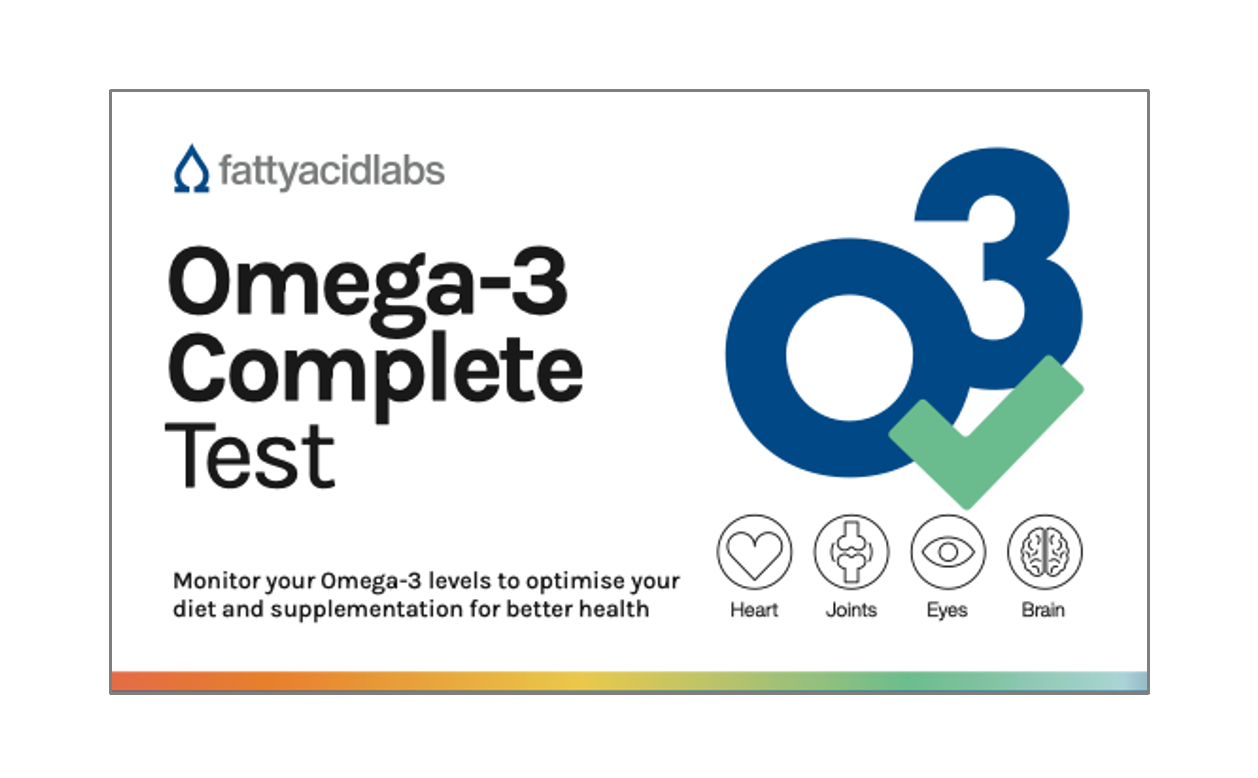
Omega-3 Index
Key Benefits:
- Reduces Risk of Heart Disease: A higher Omega-3 Index is linked to a lower risk of heart disease, including heart attacks and strokes. Omega-3s help reduce triglycerides, lower blood pressure, and improve cholesterol levels.
- Anti-Inflammatory Properties: Omega-3 fatty acids help reduce chronic inflammation, which is a major factor in the development of heart disease.
- Improves Heart Rhythm: Omega-3s contribute to heart rhythm regulation, helping to prevent arrhythmias, which can lead to serious complications.
What is?
Omega-3 Index Test
The Omega-3 Index measures the levels of EPA and DHA, two essential omega-3 fatty acids, in your red blood cells. These fatty acids play a critical role in supporting heart health, with higher levels associated with a reduced risk of cardiovascular diseases. By testing your Omega-3 Index, you can assess your heart health and take steps to optimise it. Maintaining a healthy Omega-3 Index through diet or supplementation is an effective way to protect your heart and improve overall cardiovascular function.
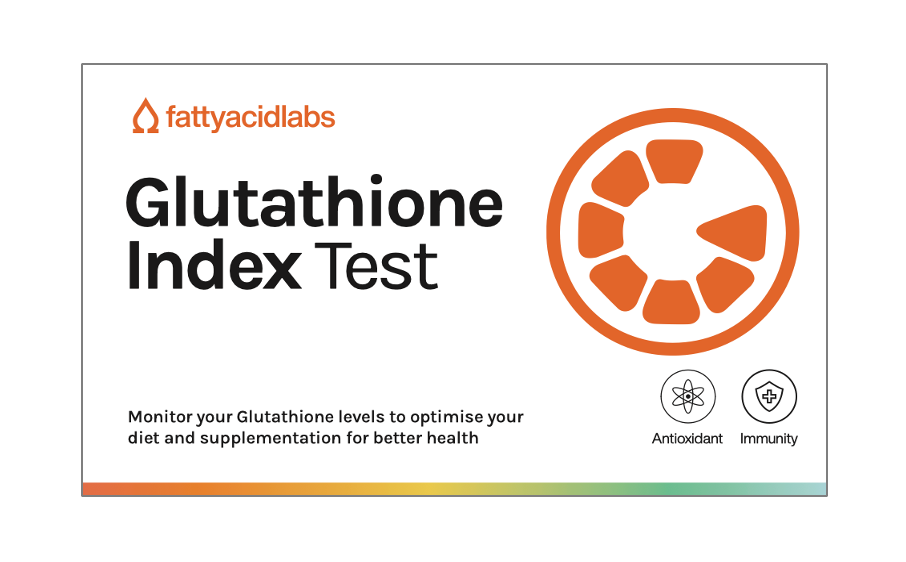
Glutathione
Key Benefits:
Protects Against Oxidative Stress: Glutathione helps neutralize free radicals that can damage heart tissue, reducing the risk of conditions like atherosclerosis (hardening of the arteries).
Supports Detoxification: By helping the body eliminate harmful toxins and heavy metals, glutathione aids in protecting the heart from the negative effects of these substances, promoting cardiovascular health.
Reduces Inflammation: Chronic inflammation is a major contributor to heart disease. Glutathione works to regulate the body's inflammatory response, helping to reduce the strain on the heart.
What is?
Glutathione Test
Glutathione, known as the "master antioxidant," plays a vital role in maintaining overall health, including the health of your heart. It is naturally produced by the body and is essential for detoxifying cells, fighting oxidative stress, and supporting immune function. Testing your glutathione levels can provide insight into your body’s antioxidant defenses. Maintaining healthy glutathione levels is key for protecting your heart and supporting overall cardiovascular health, especially in conjunction with other lifestyle habits like exercise and a balanced diet.
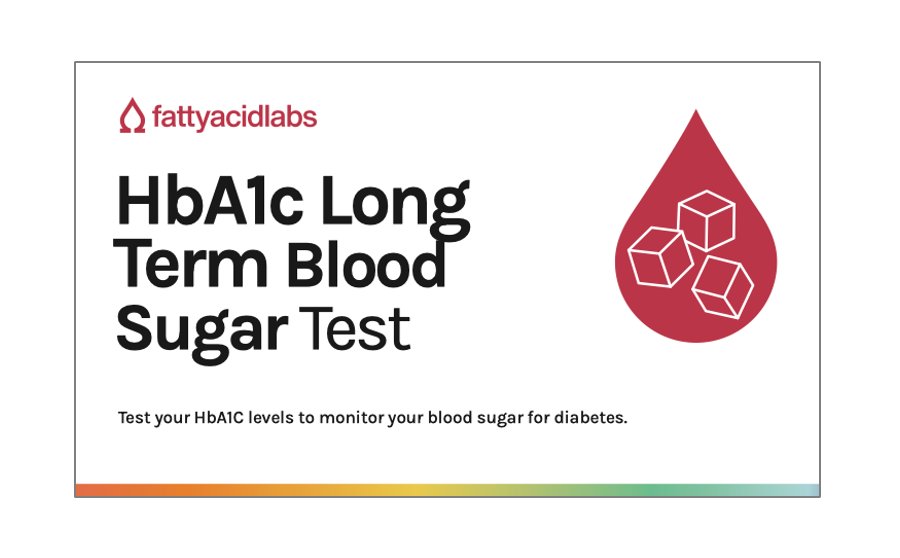
HbA1c (Haemoglobin)
Key Benefits:
- Blood Sugar Control: HbA1c measures long-term blood sugar levels, with higher levels indicating poor control and an increased risk of heart disease.
- Cardiovascular Risk: Lower HbA1c levels are associated with a reduced risk of heart attack and stroke, supporting overall heart health.
- Vascular Integrity: Maintaining healthy HbA1c levels helps protect blood vessels and improve circulation, reducing the risk of vascular damage.
- Inflammation Reduction: Proper HbA1c levels can decrease inflammation and oxidative stress, which are linked to heart disease.
What is?
HbA1c Long Term Blood Sugar Test
HbA1c, a marker of long-term blood sugar control, plays a crucial role in heart health. Elevated HbA1c levels indicate poor blood sugar management, which significantly increases the risk of developing heart disease. High HbA1c levels are associated with a greater likelihood of cardiovascular complications, including heart attacks and strokes. Maintaining optimal HbA1c levels helps protect blood vessels, enhance circulation, and reduce inflammation and oxidative stress, all of which contribute to better heart health. Effective management of HbA1c can lower the risk of cardiovascular issues and promote overall heart function, highlighting the importance of regular monitoring and control of blood sugar levels.
Introducing
Image with text slider
Use this text to share information about your brand with your customers. Describe a product, share announcements, or welcome customers to your store.






